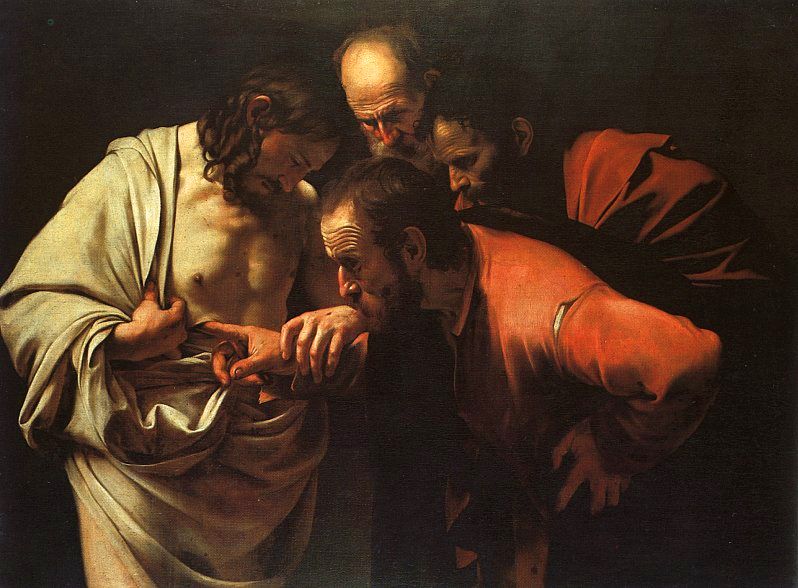2013
Six Suggestions On How To Navigate Doubt
No matter what you believe, if you’re thoughtful and honest, you will face some measure of doubt. Is what I believe true? Can we know what is true? Do I believe what I do because it is true or for other reasons (personal experiences, moral preferences, particular environment, etc)? Have I reasonably considered the other options?
I was recently asked by a friend, who is in the thick of considering the claims of Jesus Christ, “How do followers of Jesus manage doubt? How do you not let doubt swallow you up completely?” Those are good questions, no matter what you believe.
In this post, I’d like to specifically deal with doubt within the context of Christianity. Following Jesus is not an isolated hobby for personal enrichment nor for those merely looking to have their spiritual needs met. Rather, Christianity claims to be the truth of the universe and, if true – and I believe it is – that changes everything. As CS Lewis once said:
Christianity, if false, is of no importance, and if true, of infinite importance. The only thing it cannot be is moderately important.
Here are six suggestions on how to navigate doubt as you follow Jesus.
#1 Ask the Spirit for clarity and conviction.
Start in prayer. Ask the Spirit to illuminate your thinking, bring clarity and convict of any sin that may underlie your doubts. Habitual sin and/or unconfessed sin harden our souls and decrease our spiritual capacity to see rightly. In prayer, simply ask, “Holy Spirit, please convict me of any sin that may be clouding my thinking and preventing me from seeing you rightly.” Then, stop and be attentive to what comes to mind. Is there unconfessed sin in your life? Do certain relationships need to be reconciled? Are you holding on to something that He is asking you to let go of? Do you really want to deal with your doubt or are you intentionally holding on to it? Are your doubts genuine or is it that you don’t want to believe? Respond in prayerful, faith-filled, trust and obedience. You may find that your real issue isn’t doubt after all.
#2 Identify your specific questions.
Following prayer, it is crucial to identify the specific questions that are the source of your doubt(s). Doubt feels like a fog bank rolling in and we all know that it is easy to get lost, turned around and disoriented in the fog. One of the ways to combat this is to identify your specific questions/issues and not allow your doubt to remain ambiguous and nebulous. To address your doubt, you need to isolate the source of the doubt. Take some time to sit down and write out your top three questions. You may find that what felt like a fog bank was merely an isolated rain shower.
#3 Assume we are what the Bible says we are.
As you walk this out, assume for a moment that we are what the Bible says we are – broken, fallen human beings that prefer the absence of God to his presence, living life on our own terms rather than on his terms. Here’s the question: How would broken fallen human beings experience being encountered with the reality of God? Think about that for a minute. Would it not be with doubt, questioning, and suspicion? I think so. So, on the one hand, our doubts could be pointing us to the fact there is not a God (which is how we often interpret them). Or, on the other hand, they may actually be highlighting the reality of God and our brokenness (which, I believe to be the case).
#4 No one lives their lives based on absolute certainty.
Faith is not a belief in the absence of evidence. Faith is a trust which rests on sufficient evidence that is more plausible than the alternative. In other words, you don’t need 100% certainty to believe something, it just needs to be more true than false. For example, can you be sure that Antartica exists though you’ve never been there? Can you be sure that George Washington was a president of the United States? Is Seattle going to have a professional basketball team some day? I can answer “Yes” to all of these. Why? It’s plausible. Every day, whenever we’re faced with a decision, we always (though typically unconsciously) go with the side that we believe to be the more plausible of the two – even if we’re not 100% sure.
Years ago, a New York Times reporter interviewed atheist Richard Dawkins and recorded the following interaction:
“On a scale of 1 to 7, where 1 is certitude that God exists and 7 is certitude that God does not exist, Dawkins rates himself a 6: ‘I cannot know for certain but I think God is very improbable, and I live my life on the assumption that he is not there.”
The point is that everyone lives their lives based on probabilities, not just Christians. We rarely know anything with absolute certainty in life. So, when it comes to faith in Christ, it is helpful to ask yourself where you land on the spectrum of probability. What is the probability there is a God, we are broken and in need of a savior, Jesus died for our sin and rose from the grave to bring us home to Him?
Since this is something we’re banking our life on – in this and the next – it is worth accepting even if you’d say you’re not 100% sure. For example, if I had $1million to bet, it would only be wise and prudent to place it on the team that was 60% sure to win, right? For sure that 40% doubt is loud and concerning but it is still only 40%. If you’re not familiar with it, you should look up “Pascal’s wager” on this point. Personally, my experience is that gap of doubt closes the longer you walk with Jesus as you see the truth of it all unfold in real time.
#5 Consider your alternative options.
What are your other options? In other words, if you choose to reject Christ for something else, what would that be and why would that be better and more probable? So, here’s what a conversation with my doubt might look like, “Ok ‘doubt’ you’re loud and a bit troubling but what are the other options? What else explains the brokenness within me, in my relationships and in the world? What explains Jesus’ life, death, resurrection and ongoing impact around the globe? What explains the fact that nothing in this world can satisfy the desires of my soul? What alternative is there that more adequately explains all these things?”
Many other worldviews, philosophies and religions are able to explain aspects of why we and the world are the way we are, but none of them explain it all as extensively as Christianity. The point here is that if we choose to turn from Christ we are not turning to a neutral position. No, in fact, we are turning to another position that we are saying is more probable than the alternatives.
#6 Work out your doubt in community.
When we’re stuck in doubt, it can be easy to isolate or merely surround ourselves with other who are also stuck in doubt. In this case, we only reinforce our doubt and do not position ourselves well to sincerely work through what we believe. To navigate your doubt it is important to surround yourself with others who love you and are willing to listen, encourage, exhort, pray and answer questions. It may not be obvious to you why you are stuck, but it may be obvious to those around you. Intentionally invite others in.
Fighting the good fight of faith with you,
Pastor Adam





